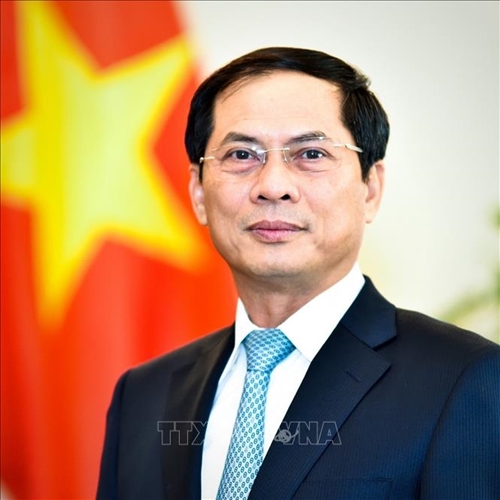January 11, 2022 | 21:49 (GMT+7)
FM highlights Vietnam’s imprints at UNSC as non-permanent member
PANO - With high resolve, activeness, creativeness, overcoming difficulties and challenges, Vietnam has had a successful tenure as a non-permanent member of the United Nations Security Council (UNSC), leaving a number of important imprints at UNSC, affirmed Foreign Minister Bui Thanh Son in a recent interview with the press.
According to the foreign minister, Vietnam's successes and imprints at UNSC as its non-permanent member in the 2020-2021 term have contributed to affirming that the Party and State's policy of upholding multilateral diplomacy is absolutely sound, thus strengthening the foundation for the country to continue pushing forward the implementation of this policy in the new period.
    |
 |
|
Foreign Minister Bui Thanh Son |
The diplomat added that through the success of the tenure as a non-permanent member of the UNSC and other important foreign affairs achievements, the Vietnamese people increasingly trust in the sound foreign policy of the Party and State, and the international community expects Vietnam to continue making more important contribution to solving global and regional problems.
Vietnam’s assuming the role of a non-permanent member of the UNSC has contributed to consolidating a stable and favorable external situation for the nation building and safeguarding cause, expanding and deepening relations with many important partners, especially UNSC member states.
Vietnam has also asserted its position and prestige as a faithful friend, a reliable partner, and an active and responsible member of the international community, and has received the consensus and support of all members of the UNSC and international friends.
According to FM Bui Thanh Son, during the two-year term, Vietnam can learn from numerous valuable lessons. The first lesson is the sound settlement of the relationship between independence, self-reliance and international solidarity and cooperation; between national interests and international obligations and responsibilities on the basis of fundamental principles of the U.N. Charter and international law. The second one is the promotion of the nation's tradition of diplomacy and President Ho Chi Minh's diplomatic ideology. The third lesson is skillful combination between position and power, between multilateral and bilateral diplomacy, and between political, economic and cultural diplomacy. The fourth one is the importance of training competent diplomats.
Source: PANO/VNA
Translated by Chung Anh